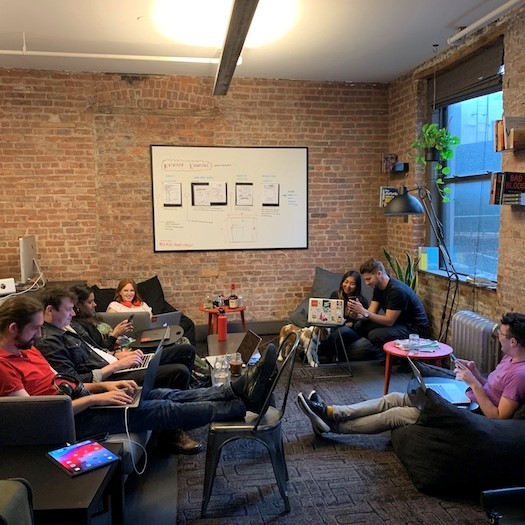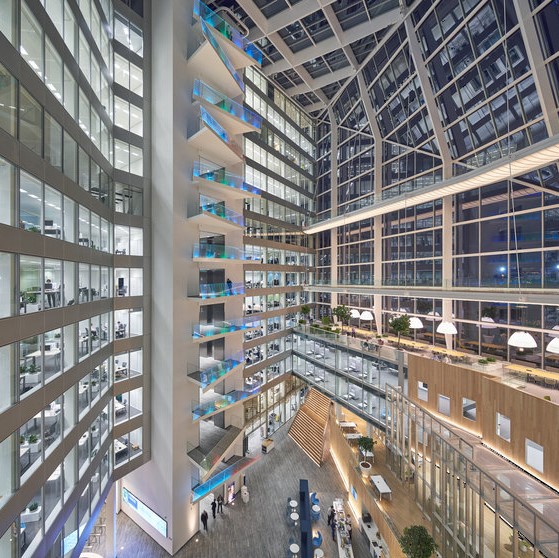To provide the best experiences, we use technologies like cookies to store and/or access device information. Consenting to these technologies will allow us to process data such as browsing behaviour or unique IDs on this site. Not consenting or withdrawing consent, may adversely affect certain features and functions.
The technical storage or access is strictly necessary for the legitimate purpose of enabling the use of a specific service explicitly requested by the subscriber or user, or for the sole purpose of carrying out the transmission of a communication over an electronic communications network.
The technical storage or access is necessary for the legitimate purpose of storing preferences that are not requested by the subscriber or user.
The technical storage or access that is used exclusively for statistical purposes.
The technical storage or access that is used exclusively for anonymous statistical purposes. Without a subpoena, voluntary compliance on the part of your Internet Service Provider, or additional records from a third party, information stored or retrieved for this purpose alone cannot usually be used to identify you.
The technical storage or access is required to create user profiles to send advertising, or to track the user on a website or across several websites for similar marketing purposes.
 May 2019 saw a total of 13.3m sq ft of London office space under construction across 98 developments. 60 percent of this space has already been let or is under offer, the highest level to be achieved in over 15 years. This is according to new data from real estate advisor CBRE. Take-up of office space rose above the 10-year average in May 2019, increasing to 1.2m sq ft. There were eighty transactions, of which twelve were greater than 20,000 sq ft in size. The largest deal of the month saw the European Bank for Reconstruction & Development take 358,700 sq ft at Five Bank Street (pictured). (more…)
May 2019 saw a total of 13.3m sq ft of London office space under construction across 98 developments. 60 percent of this space has already been let or is under offer, the highest level to be achieved in over 15 years. This is according to new data from real estate advisor CBRE. Take-up of office space rose above the 10-year average in May 2019, increasing to 1.2m sq ft. There were eighty transactions, of which twelve were greater than 20,000 sq ft in size. The largest deal of the month saw the European Bank for Reconstruction & Development take 358,700 sq ft at Five Bank Street (pictured). (more…)






 Most US workers prefer to spend some time in an office (83 percent) over fully working from home, according to
Most US workers prefer to spend some time in an office (83 percent) over fully working from home, according to 


 UK SMEs are losing out to big tech in the battle to recruit top tech talent, according to Robert Half UK’s new report,
UK SMEs are losing out to big tech in the battle to recruit top tech talent, according to Robert Half UK’s new report, 







 Socialising and drinking opportunities are some of the least enjoyable things about working in London, as loving their job and a chance to grow personally is more of an incentive for those who work in the Capital, a new report suggests. The survey of 1,000 London workers by Flexioffices, claims that 75 percent of employees in the city enjoy going to work for the personal development opportunities, training and the job itself. Flexible hours are becoming an increasingly enticing aspect of a job, with 21 percent of London workers liking their workplace because of the flexible hours available.
Socialising and drinking opportunities are some of the least enjoyable things about working in London, as loving their job and a chance to grow personally is more of an incentive for those who work in the Capital, a new report suggests. The survey of 1,000 London workers by Flexioffices, claims that 75 percent of employees in the city enjoy going to work for the personal development opportunities, training and the job itself. Flexible hours are becoming an increasingly enticing aspect of a job, with 21 percent of London workers liking their workplace because of the flexible hours available.


 Employees trust their CEOs less than they did seven years ago, although trust in line managers remains the same, new research claims. It also suggests that one of the reasons for mistrust is that CEOs seem unable to understand the role of their employees and the contributions they make to working culture. According to Trust in Leaders, by The Institute of Leadership & Management, workers trust their CEOs considerably less than they did in 2011, as compared to then, the results show trust in CEOs has fallen by 8 percent.
Employees trust their CEOs less than they did seven years ago, although trust in line managers remains the same, new research claims. It also suggests that one of the reasons for mistrust is that CEOs seem unable to understand the role of their employees and the contributions they make to working culture. According to Trust in Leaders, by The Institute of Leadership & Management, workers trust their CEOs considerably less than they did in 2011, as compared to then, the results show trust in CEOs has fallen by 8 percent.
 A new study suggests that more than 7 in 10 Britons working in production are concerned that their jobs may be made obsolete thanks to developments in Artificial Intelligence in the coming years. What’s more, over two fifths of respondents believe AI could rebel against humans. As technology develops and more money and time is invested into AI, the public’s opinion has been explored, with those working in production, HR and construction uncovered to be the most worried that AI could take their jobs away from them.
A new study suggests that more than 7 in 10 Britons working in production are concerned that their jobs may be made obsolete thanks to developments in Artificial Intelligence in the coming years. What’s more, over two fifths of respondents believe AI could rebel against humans. As technology develops and more money and time is invested into AI, the public’s opinion has been explored, with those working in production, HR and construction uncovered to be the most worried that AI could take their jobs away from them. 






